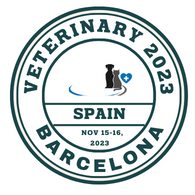Wildlife and Ecosystem Health
Wildlife Ecology is the applied ecology and management of wild populations of birds and mammals. This includes the study of terrestrial and aquatic wildlife & biodiversity monitoring and conservation, endangered species management, protected areas planning, ornithology, stream ecology, and fish habitat. Wildlife and ecosystem health are intricately linked aspects of our natural world. The health of wildlife populations directly impacts the health and balance of ecosystems, and vice versa. Here's an in-depth exploration of wildlife and ecosystem health:
Interconnectedness of Wildlife and Ecosystems:
Biodiversity: Wildlife represents a diverse array of species that play unique roles within ecosystems. Biodiversity is a measure of ecosystem health and resilience. Ecosystem Services: Healthy ecosystems provide critical services like pollination, water purification, and pest control, which are essential for both wildlife and human well-being. Food Web: Wildlife species are part of complex food webs, and changes in one population can ripple through the ecosystem, affecting other species.
Related Conference of Wildlife and Ecosystem Health
Wildlife and Ecosystem Health Conference Speakers
Recommended Sessions
- Animal Structure & Function
- Animal Vaccines
- Emergency and Critical Care
- Internal Medicine
- Anesthesia and Analgesia
- Animal Dermatology
- Animal Genetics
- Animal Microbiology
- Animal Physiology
- Animal Reproduction
- Animal Welfare
- Behavioral Medicine
- Clinical Pharmacology
- Environmental Threats
- Human-Animal Bond
- Layer Poultry Farming
- Small Animal Medicine and Surgery
- Veterinary and Animal Science
- Veterinary and Social Science Research
- Veterinary Dentistry
- Veterinary Parasitology
- Veterinary Telemedicine
- Wildlife and Ecosystem Health
- Zoonotic & Infectious Diseases
Related Journals
Are you interested in
- Animal Nutrition & Welfare - Veterinary Summit 2026 (Japan)
- Animal Nutrition, Welfare & Ethics - Veterinary Summit 2026 (Japan)
- Antimicrobial Resistance & Global Biosecurity - Veterinary Summit 2026 (Japan)
- Companion Animal Medicine & Surgery - Veterinary Summit 2026 (Japan)
- Livestock Health & Production Management - Veterinary Summit 2026 (Japan)
- Veterinary Biotechnology & AI in Animal Health - Veterinary Summit 2026 (Japan)
- Wildlife, Aquatic & Exotic Animal Medicine - Veterinary Summit 2026 (Japan)
- Young Researchers & Innovation Forum - Veterinary Summit 2026 (Japan)
- Young Veterinarians & Research Innovation Forum - Veterinary Summit 2026 (Japan)
- Zoonotic Diseases & One Health - Veterinary Summit 2026 (Japan)

